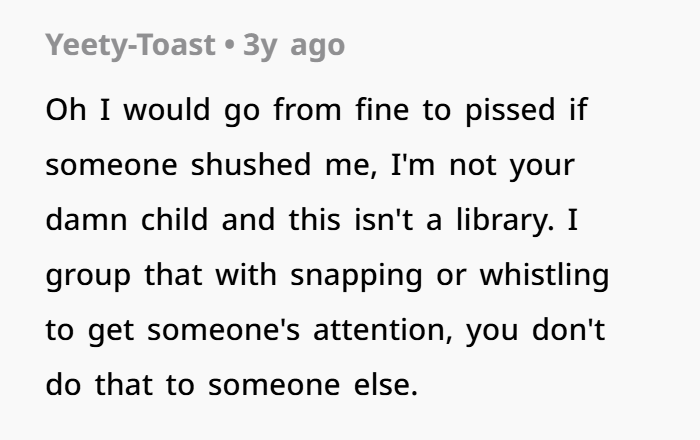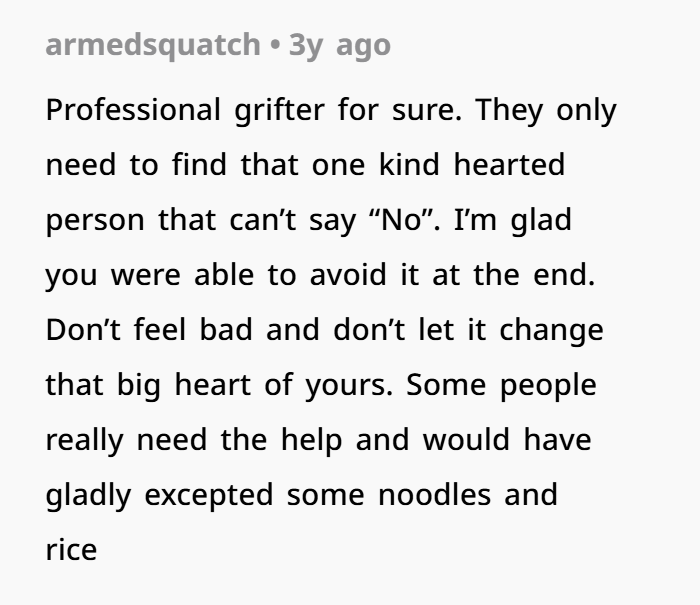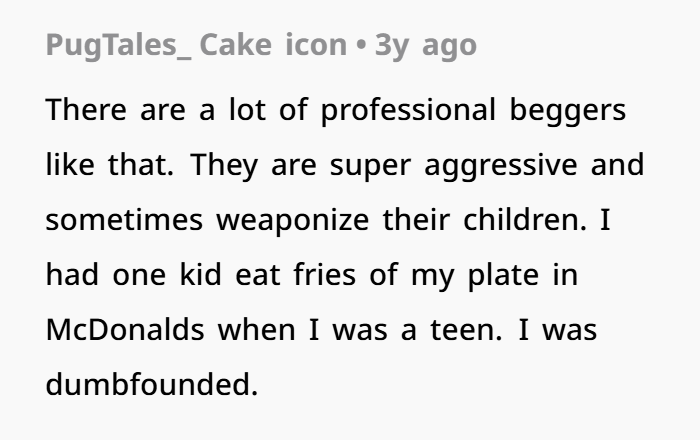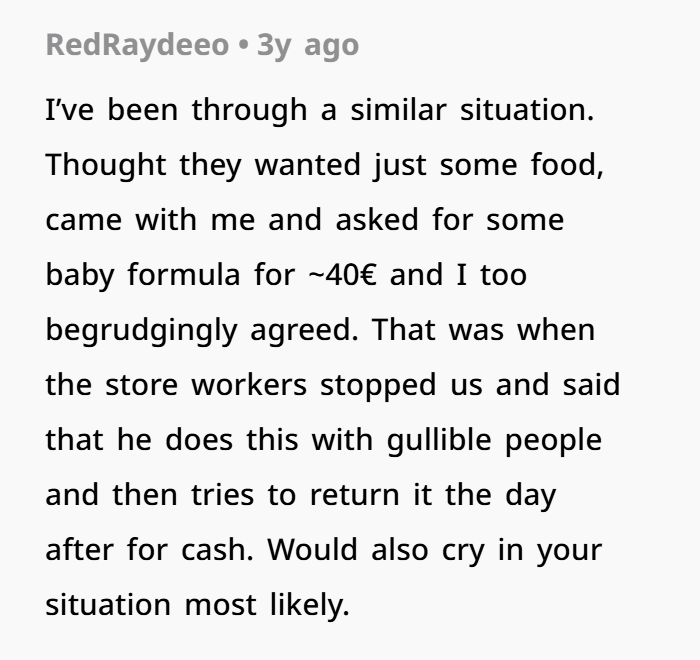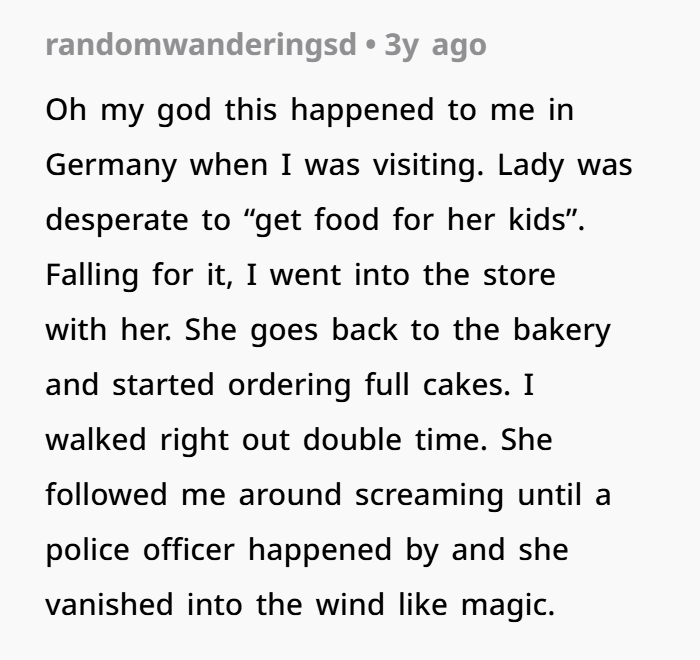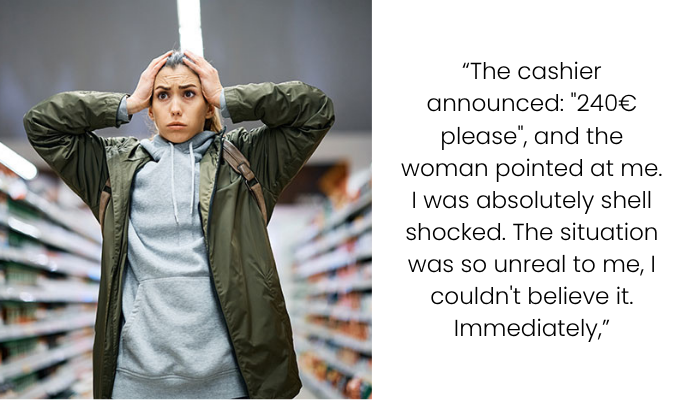Trapped by Kindness: A Grocery Store Scam Exploiting Social Anxiety
In a seemingly routine act of compassion, a 19-year-old with social anxiety found themselves ensnared in an elaborate grocery store scam. Approached by a woman claiming to need food for her five children, the individual agreed to help, expecting to purchase basic necessities. However, the situation quickly escalated as the woman filled a shopping cart with luxury items, including beauty products and cigarettes, ultimately leaving the unsuspecting helper with a €240 bill and a traumatic experience.
This incident highlights the vulnerability of individuals with social anxiety to manipulative tactics, especially in high-pressure situations. The psychological struggle to assert boundaries can make it challenging to refuse unreasonable requests, leading to exploitation and emotional distress.
Most folks would probably help a mother who needed food for her kids

A well-meaning woman regretted agreeing to help
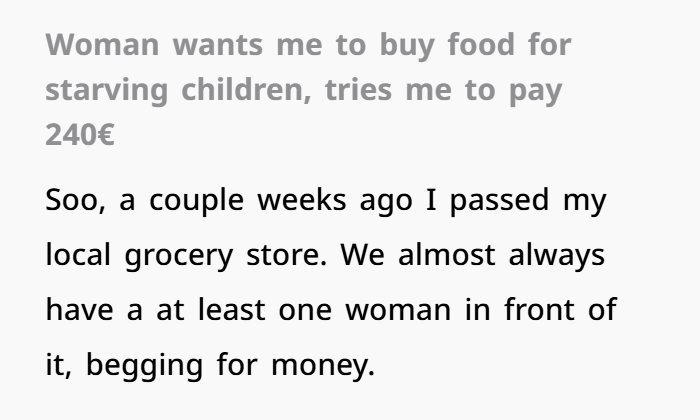
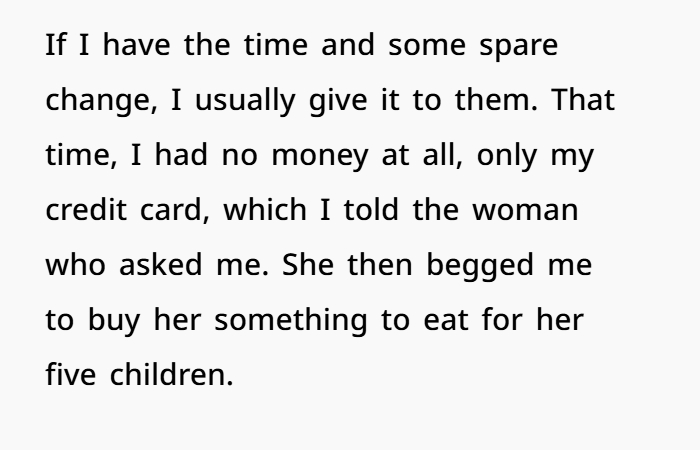
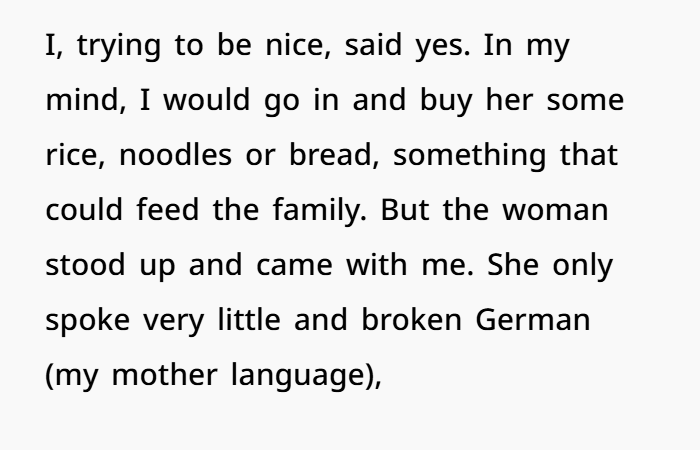

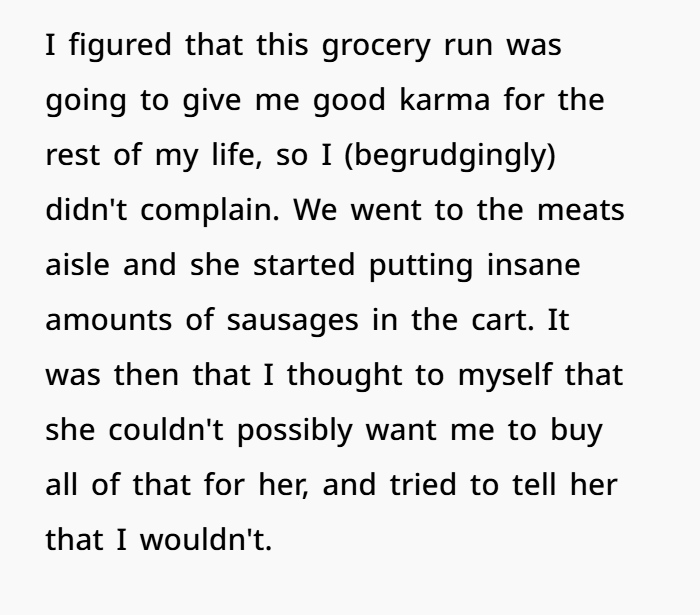
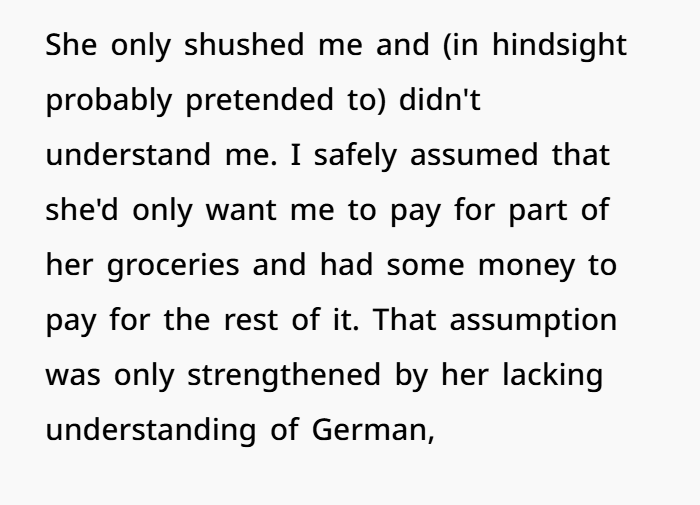
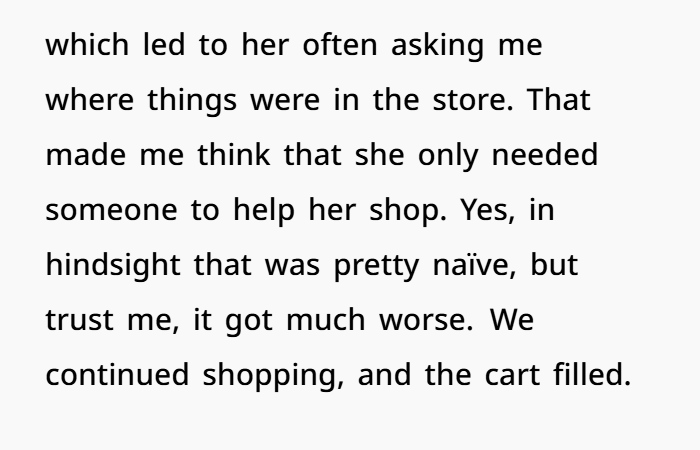

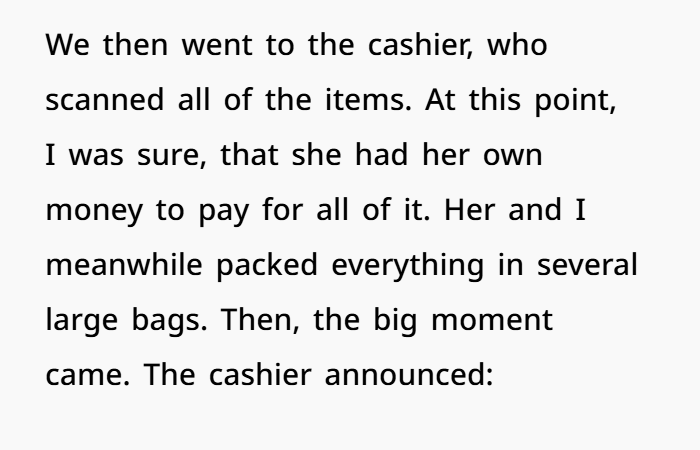
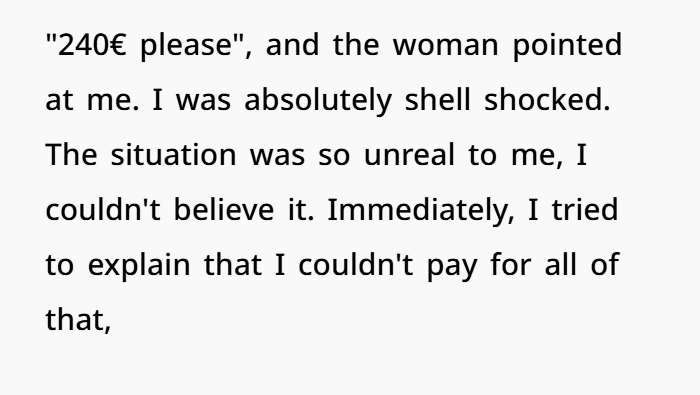
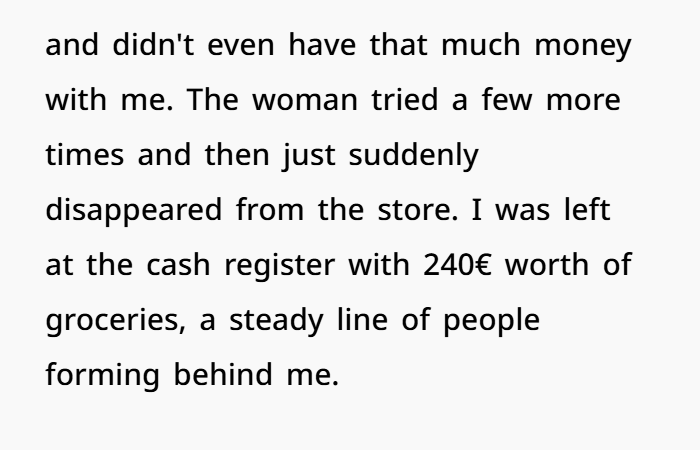
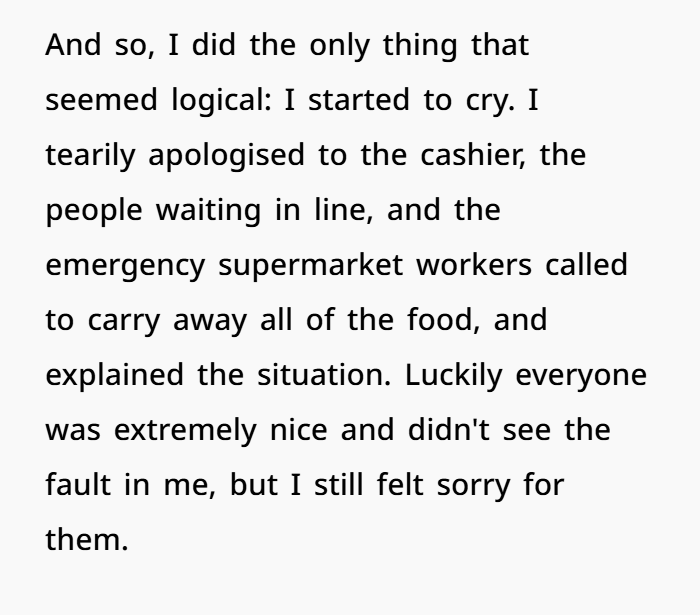

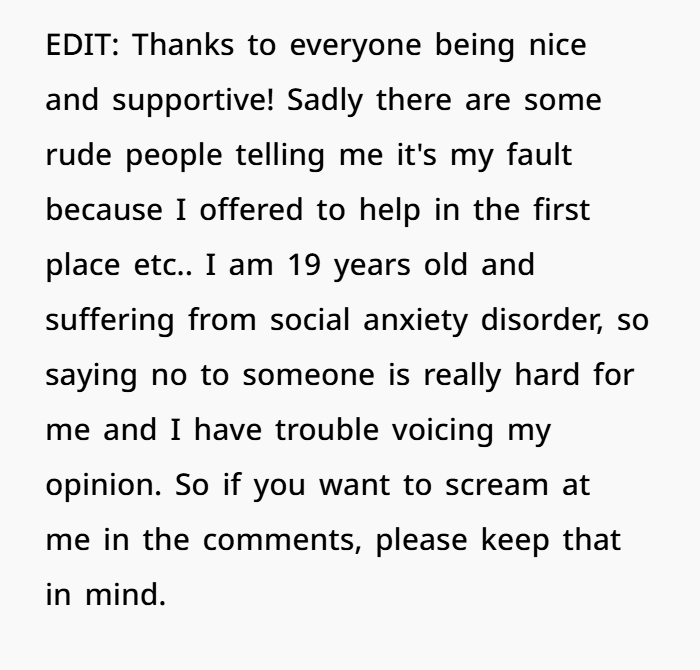
The narrative you’ve shared is a poignant example of how social anxiety can profoundly influence decision-making, especially in unexpected social situations. At 19, grappling with social anxiety disorder (SAD), you’re not alone. In Europe, the lifetime prevalence of SAD is estimated at 6.7%, with higher rates among adolescents and young adults . This condition often coexists with other mental health issues, such as depression and substance use disorders, compounding the challenges faced by those affected.
The Impact of Social Anxiety on Decision-Making
Social anxiety isn’t merely about feeling nervous in social settings; it encompasses a deep-seated fear of negative evaluation and rejection. This fear can lead to avoidance behaviors and difficulty asserting oneself. In your situation, the inability to say “no” to the woman’s escalating requests likely stems from this fear, coupled with a desire to avoid confrontation and potential judgment.

Research indicates that individuals with social anxiety may experience “decision paralysis,” where the fear of making the wrong choice leads to inaction or acquiescence . This can be particularly problematic in high-pressure situations, such as the one you encountered at the grocery store.
The Role of the Spotlight Effect
The “spotlight effect” is a cognitive bias where individuals overestimate how much others notice their actions . For those with social anxiety, this effect is magnified, leading to heightened self-consciousness and fear of embarrassment. At the checkout counter, the fear of being judged by the cashier and other customers likely intensified your distress, making it even more challenging to assert your boundaries.
The Intersection of Altruism and Exploitation
Your willingness to help someone in need is commendable. However, it’s essential to recognize that not everyone has pure intentions. The woman’s behavior—escalating from requesting basic necessities to adding luxury items like beauty products and cigarettes—suggests a potential exploitation of your kindness. This situation underscores the importance of setting boundaries, even when our instincts urge us to help.
Coping Strategies and Resources
Managing social anxiety involves developing coping mechanisms to navigate social interactions more comfortably. Here are some strategies:
- Cognitive Behavioral Therapy (CBT): CBT is an evidence-based approach that helps individuals identify and challenge negative thought patterns, replacing them with more balanced perspectives. It has been shown to be effective in treating social anxiety .
- Mindfulness and Relaxation Techniques: Practices like deep breathing, meditation, and progressive muscle relaxation can help reduce anxiety symptoms and improve emotional regulation.
- Assertiveness Training: Learning to express your needs and set boundaries respectfully can empower you to handle challenging social situations more effectively.
- Support Groups: Connecting with others who understand your experiences can provide validation and encouragement. In Germany, organizations like Irrsinnig Menschlich offer programs to support mental health and reduce stigma .
- Professional Help: Seeking assistance from mental health professionals can provide personalized strategies and support. In Germany, mental health services are accessible, with many covered by statutory health insurance .

Reflecting on the Experience
It’s crucial to approach this experience with self-compassion. Social anxiety can significantly impact one’s ability to navigate social situations, and your reaction was a natural response to an overwhelming scenario. Rather than viewing this incident as a failure, consider it an opportunity for growth and learning.
Remember, seeking help is a sign of strength, not weakness. By addressing social anxiety head-on, you can develop the tools needed to handle similar situations in the future with confidence and resilience.
Some folks shared their thoughts
